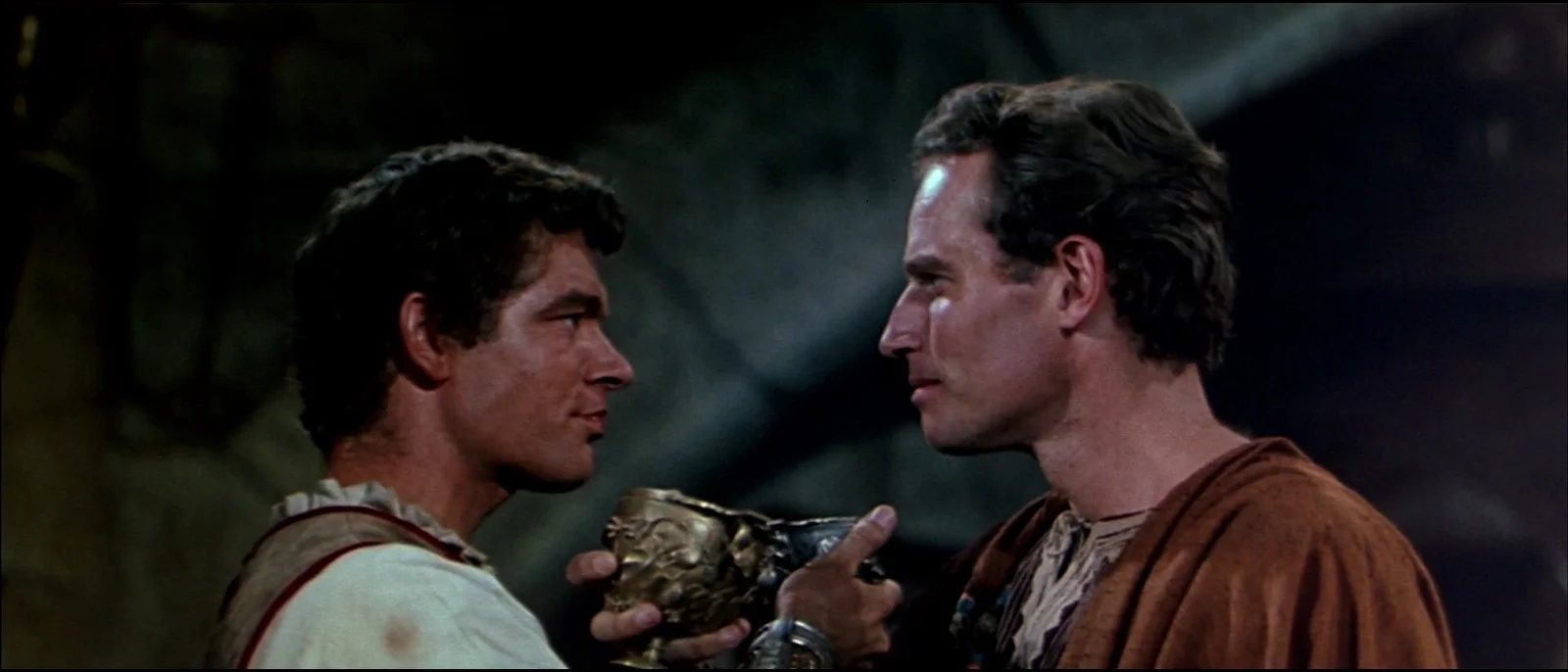Celluloid Paradiso
Film reviews by André Crous, professional film critic and member of FIPRESCI.
The Book Thief, which seems to shift the blame for the atrocities of Nazi Germany to an offscreen character named “Death”, is one of the worst World War II films that have ever seen the light of day.
A man reaching the end of his natural life has to juggle his quest to find a decent adoptive family for his dog and an unexpected visit from an old friend.
Noah, a remarkably perceptive short film about the consequences of relying on social media alone to gauge what is happening in real life, has first-rate visuals and a climax immersed in a quiet pathos.
In the exquisite Whiplash, Damien Chazelle’s second feature, we catch a glimpse of a young drummer’s blood, sweat and tears on the way to greatness.
Despite this unrelentingly close experience of events, a number of self-conscious shots in which we only see the back of main actress Denise Newman’s head, and a story that is very simple, first-time director Hermanus succeeds in gripping his audience thanks to his self-assured direction that steers the film away from any fake sentimentality.
It is truly remarkable that this film, whose subject is always implied but never mentioned by name, can have such a strong impact on a viewer who has grown up in a much less restricted era of movie-going.
This medium-length film is interesting on many levels, and while the action transcends mere slapstick, Keaton’s conception of the film’s biggest stunts makes for remarkable commentary on the perspective of the viewer.
Napoléon, by French filmmaker Abel Gance, is an experimental epic that has achieved the status of legend, with good reason.
No Man’s Land is a small yet devastating film about two soldiers from opposing sides stuck in a trench on the battlefield (no man’s land), somewhere near Tuzla in Bosnia and Herzegovina, during the Yugoslav Wars of the 1990s.
With this film, Méliès, the first master of cinematic magic, showed how to dazzle an audience, and he deserves all the recognition of being the first dreamer of the cinema and for engaging our fantasies in a way that demonstrated the far-reaching possibilities of filmmaking.
There is greatness behind every shot in Steve McQueen’s Hunger. This film marks the début of a remarkable talent that does not come round very often and demonstrates what is still possible within the realm of so-called alternative cinema.
Canary is a coming-of-age film set in apartheid-era South Africa that also marks the coming of age of contemporary South African cinema.
Ingmar Bergman’s “The Virgin Spring” involves the rape of a virgin in medieval Sweden and questions the meaning of God’s (initial) silence when her father takes revenge.
Based on real events, François Ozon’s “By the Grace of God” recounts the struggles of multiple middle-aged men in Lyon to come to terms with being sexually abused by their local priest in their youth.
A Russian Youth spends much of its time on the front lines of foolishness with a silly central character who shows no development and an experimental format that undermines its own potential seriousness.
Wings was the first film to receive a Best Picture statuette at the Academy Awards, but just maybe the awards show was created especially to honour this remarkable World War I film.
The sharp focus on Chakra, who appears in every single scene, draws us into his story regardless of whether we feel we understand him. Although a couple of the scenes are haunting because of their implicit inhumanity (the dismemberment of one of the slaves is particularly tough to watch), Buoyancy does not engage in gratuitous violence. Its mostly taciturn central character stoically confronts…
The Double is a stylish, surrealist neo-noir that you shouldn’t be watching if you expect all your questions answered, but on top of wonderful casting and a frightening sense of doom throughout, this may be one of the most original films in recent memory.
For the film critic, the problem with twist endings is that it is frowned upon to dwell on that final revelation, despite their importance to the experience. Even just mentioning that there is a last-minute information dump that causes us to rethink the entire film is often too much for the reader to handle. It’s a fine line to walk, but neither the critic nor the reader/potential viewer should be overly sensitive, particularly if it is made clear why such information is included.
Films like Gravity are one in a million. Besides reminding everyone of the incredible visual talents he has that never overwhelm the story he tells, Mexican director Alfonso Cuarón, who has honed his skills at directing long but dynamic scenes with a single take, ambitiously faced the challenge of a minimal cast and has delivered a film for the ages.
The Celluloid Closet, a ground-breaking documentary released in 1995, reveals many of the queerest moments from the first 100 years of the cinematic art form.
American Graffiti remains the most enjoyable, heartfelt film George Lucas ever directed and one of the best films about the bittersweet end of childhood.
Real-life story about family and forgiveness is brilliantly told in one of the best feature-film débuts of all time.
The splendour of Fellini’s eighth and a halfth film lies in its ability to entertain us so effortlessly while being simultaneously incessantly creative, weaving together dream, fantasy, recollection and present reality, and commenting on the struggles of an artist while doing all of the above completely coherently.
Chungking Express has boundless energy, revels in repetition and is quite simply one of the most absorbing films ever made.
The 50-second recording of a train’s arrival at La Ciotat Station was neither one of the first films ever made nor a reason for filmgoers to run in terror from the theatre.
There’s more. View an archive of all reviews by André Crous →



























There will be few dry eyes in the house at the close of the film, and hopefully many a viewer’s heart will beat with rage at the injustice that good people suffer at the hands of those who follow often pointless rules to a fault and relish their power over the powerless.